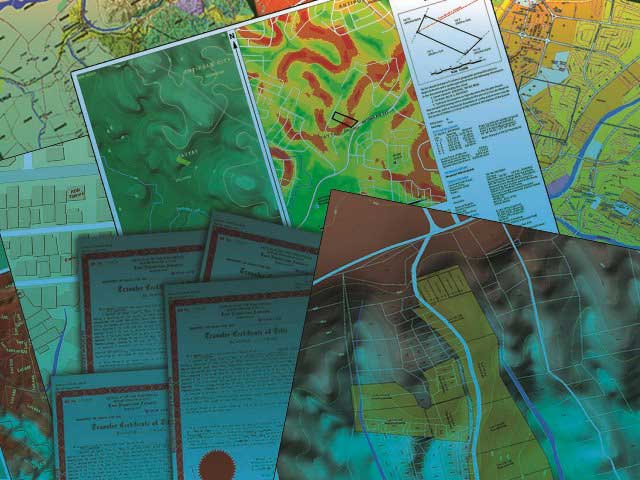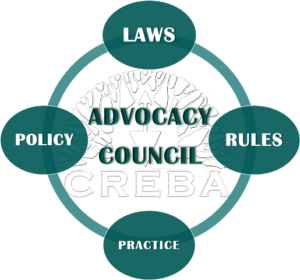
Public faith in the Torrens system of land registration has been severely eroded by decades of rampant title fakery, land grabbing, title laundering and other nefarious acts perpetrated with the use of dubious titles.
Despite stringent safeguards in the land registration laws, which entail sacrifices in terms of a slower pace in effecting legitimate land transactions, title fraud has become entrenched – costing the economy and legitimate landowners billions upon billions of pesos .
As an entity whose members have a direct stake in land issues, CREBA acutely feels the need for Government to apply aggressive means to restore faith in the Torrens title – without impeding land development activities.
Bills have been filed in the 18th and 19th Congress, aimed primarily at expediting registration of land transactions in the offices of the Registry of Deeds.
However, it is CREBA’s view that the safeguards against title fraud – already tattered as they are – must not be sacrificed in favor of convenience.
The latest iteration (HB 2302) of those Congressional Bills provide for the following:
- Creation of Office of Land Adjudicator (OLA) in each region, and transferring to it the exclusive jurisdiction of the courts to resolve the following petitions:
- Reconstitution of lost or destroyed registry copy of certificate of title;
- Replacement of lost or destroyed owner’s duplicate certificate of title; and
- Correction, amendment, alteration, and revision of entries in certificates of title.
- Transferring to the Registry of Deeds the court’s jurisdiction over petitions for cancellation of the lien imposed on administratively reconstituted titles.
- Enabling automatic cancellation of adverse claims.
- Conferring upon the OLA the jurisdiction to resolve petitions questioning the validity of subdivision/consolidation plans approved by LRA and LMB.
Creation of an OLA and transfer of court jurisdiction thereto
Such a move would create an additional layer of bureaucracy that is not only unwarranted but worse, would open up new avenues for perpetration of title fraud or corruption in an agency that is, rightly or wrongly, already notorious in that regard.
Adjudication by administrative bodies endowed with quasi-judicial functions may be seen as expeditious, but overall, is far inferior to judicial process. This is because the latter is subject to a set of stringent evidentiary rules and procedural requirements designed to protect rightful owners and the public.
As it is, the proposed legislation is silent as to the parameters, requirements, rules, terms and conditions to be observed by the OLA in the exercise of the jurisdictional authorities sought to be transferred. These deficiencies could be easily exploited by the nefarious to further undermine the Torrens system.
On the other hand, if the intention is for the OLA to adopt the pertinent rules of court, then it should have been so stated in the Bill. However, if this were to be done and the OLA were meant to operate in exactly the same manner as the courts, then the sought transfer of jurisdiction would appear to be bereft of compelling reason – it would neither serve to expedite processes nor minimize the incidence of wrongful acts.
Administrative reconstitution – an extremely dangerous proposition
The Bill seeks to transfer to the OLA the jurisdiction of courts over petitions for reconstitution of lost or destroyed original or registry copy of a certificate of title, provided that the manually issued copy still exists in the Registry Office concerned.
The proviso is incomprehensible in the light of the Supreme Court’s definition of reconstitution, to wit: “Reconstitution is the restoration of the instrument or title allegedly lost or destroyed in its original form and condition. Its only purpose is to have the title reproduced, after observing the procedure prescribed by law, in the same form they were when the loss or destruction occurred.”
The question arises: if the manually issued copies are still existing in the Registry Office, what need would there be to reconstitute?
At any rate, administrative reconstitution is an extremely dangerous proposition, in view of the numerous cases of title fraud perpetrated with the use of fraudulently reconstituted titles.
As the Supreme Court noted in many cases, reconstitution has been exploited as a “quick but illegal way to obtain Torrens certificates of titles.”
While judicial reconstitution may have been the culprit in a number of cases, nonetheless the administrative process is still deemed inferior because of its expeditious nature which sacrifices certain requirements that otherwise serve as safeguards. This was obviously the rationale of the framers of PD 1529 for abrogating the previously allowed administrative reconstitution.
The existence of electronic copies of titles in the LRA database should render reconstitution – whether judicial or administrative – superfluous. CREBA proposes enactment of a law that endows these electronic copies the same legal character conferred upon reconstituted titles, and thus enable their use for all legal purposes.
If at all reconstitution may be allowed, it must be limited only to calamitous situations affecting RD offices where the manually issued titles have not yet been scanned and included in the electronic database.
Replacement of owner’s duplicate certificate of title
PD 1529 provides that upon court order, a new Owner’s Duplicate certificate of title may be issued to replace a lost or destroyed one.
Over the years, there have been numerous litigations involving transactions effected with the use of Owner’s Duplicates falsely obtained under this provision of law. Obviously, nefarious elements have been able to get away with fraudulent petitions, the stringent rules of court notwithstanding.
The Bill seeks to transfer this jurisdiction to the OLA, but again, fails to specify parameters, procedures or requirements.
The question arises: if courts with their stringent rules apparently are not impervious to misjudgment or worse, corruption, how would the public be better off with an administrative entity – whether the proposed OLA or any other – taking over carte blanche?
Administrative correction of titles
Under PD 1529, amendments or alterations in a certificate of title or memorandum thereon may be made only on court order. The Bill seeks to amend this, under two scenarios:
- Correction of a certificate after it has been issued or released, petitions over which the OLA is being conferred jurisdiction; and
- Correction of clerical errors after printing and before the release of the certificate, for which the Bill provides for a method of electronic correction via a “Request for System Update (RSU)” to be approved by the Register of Deeds.
On the first scenario, the Bill provides that corrections shall be on the grounds provided under Section 108 of PD 1529, but does not specify the parameters and procedures to circumscribe the exercise of authority.
In other words, there are no measures to inhibit abuse, arbitrariness, intercalation for purposes of perpetrating fraud, or pursuit of other insidious motives. This would amount to abrogating the safeguards enshrined in existing law.
On the second scenario, the Bill provides that the RD’s duty to approve the RSU is ministerial – in other words, does not require the RD to scrutinize or evaluate whether the desired correction is warranted or supported by authentic evidence at hand.
The question arises: what would prevent an unscrupulous RD personnel from submitting a RSU designed to result in issuance/release of a fraudulent certificate, simply by claiming clerical error?
There is no argument over the need to reduce the incidence of erroneous though valid titles. However, with LRA’s existing technology, the electronic system of registration can be vastly improved by integrating error traps in the data entry processes. A review/evaluation process could also be introduced to intercept inconsistencies between entries and information in the source documents – all BEFORE printing a certificate rather than after.
Cancellation of lien relative to administratively reconstituted title
RA 26 requires that when a certificate is administratively reconstituted, that fact must be annotated on the reconstituted certificate, and the annotation may be cancelled only upon court order.
The Bill seeks to transfer to the RD the court’s jurisdiction on the matter, but without specifying that cancelation by the RD shall be subject to the procedures and requirements set forth in Section 9 or RA 26.
Again, this is fraught with dangers. A reconstituted certificate has no discernible past; it is intrinsically defective in that its origins and chain of transfers prior to the reconstitution are near impossible to trace.
Furthermore, as Section 7 of RA 26 provides, administratively reconstituted titles shall be without prejudice to any party whose right or interest in the property was duly noted in the original at the time it was lost.
The annotation of reconstitution serves as notice or warning to the whole world of these defects. Thus, whether it is cancelled or not, and whether it is the court or the LRA or the RD that authorizes the cancellation, such annotation must remain affixed to the reconstituted certificate and all succeeding transfer certificates.
Automatic cancellation of adverse claims
PD 1529 allows the registration and annotation of an adverse claim on a title by any person who submits a sworn statement of his claim to the Register of Deeds. Until a court orders its cancelation, the annotation remains and is carried over to succeeding titles.
Due to lack of deterrents in the law, the process has been rampantly abused by persons who register frivolous claims solely for the purpose of harassment or extortion, to the detriment of titleholders whose properties consequently suffer considerable decline in market value.
In this regard, the Bill provides as follows:
- An adverse claim shall be effective for sixty days from registration;
- Before the lapse of the period, the claimant may either withdraw his claim, or file a case before the court;
- If a case is filed within the period, the adverse claim shall be canceled by the RD and replaced with a notice of lis pendens, without need of a court order for cancellation;
- If the adverse claimant filed no petition in court, or the filing of the said petition did not result in the registration of the corresponding Notice of Lis Pendens, the adverse claim shall, by operation of law, cease to have any legal force and effect.
In other words, under the Bill, the notice of lis pendens is deemed sufficient to substitute for the annotation of adverse claim.
The Supreme Court rules otherwise. In the case of Valderama vs. Arguelles, the Court declared that a notice of pending litigation does not render a registered adverse claim ripe for cancellation, since a mere notice does not constitute adjudication of the claim.
While it is imperative to prevent abuse of the privilege of registering adverse claims, however, CREBA deems it wise to come up with a solution that is not hostile to the Court’s ruling.
A better alternative may be prescribing much stiffer penalties based on property value.
Adjudicating validity of approved survey plans
Conferring upon the OLA – or any other administrative entity for that matter – the jurisdiction to resolve petitions questioning the validity of approved subdivision/consolidation plans would encroach upon the jurisdiction of the courts to resolve title cases and controversies.
Under the time-honored jurisprudential rule, a claimant in a title controversy must prove not only the legitimacy of his title, but also the identity of the land it covers. The survey plan is the ultimate proof of land identity.
As the validity of an approved survey plan directly impacts on the validity of the title itself, the issue thus falls squarely under court jurisdiction.
The legal niceties aside, the intended conferment of power would be dysfunctional. Within the LRA, it would amount to authorizing a subordinate to review decisions of his superior, and in some cases perhaps overturn them. With respect to LMB-approved plans, in all likelihood it would further create inter-agency irritants that would only aggravate the existing battle for turf.
The CREBA-proposed Land Registration Reform Act
Towards achieving speed and convenience in land registration processes, and at the same time strengthening the safeguards against title fraud, CREBA has formulated a Draft Bill which provides for the following:
- Conferment of legal status upon digital images of titles existing in the LRA’s electronic database of land titles;
- Conditions for reconstitution of registry copy of title and replacement of owner’s duplicate, when scanned copy is not in the electronic database;
- Proper disposition of adverse claims;
- Specific process and conditions for administrative correction of titles;
- System of public advisories on ongoing and recently resolved cases involving title fraud;
- Improvements and more extensive use of electronic processes in lieu of manual procedures;
- Stiffer penalties; and
- Creation of a high-level Land Registration Oversight Council, under the Office of the President, with investigatory powers.


